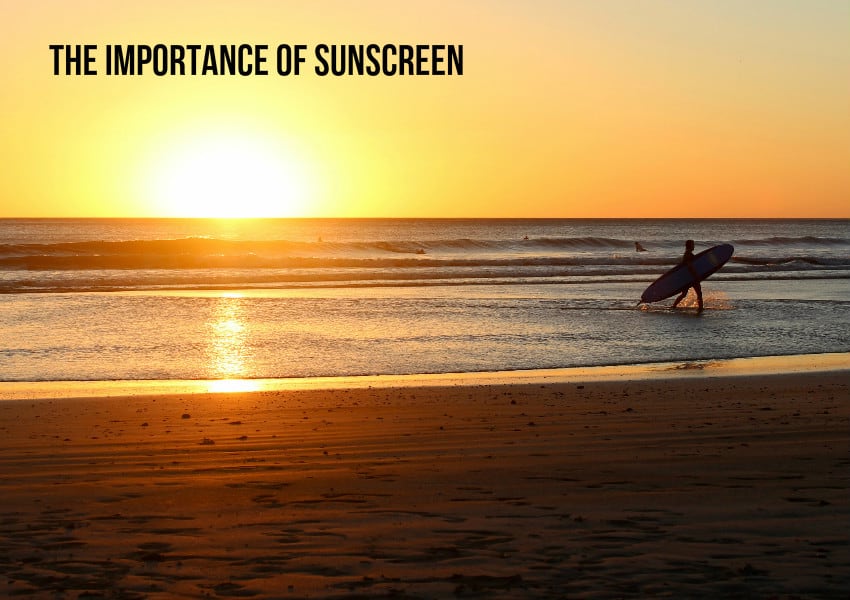
IMPORTANCE OF SUNSCREEN
Importance of Sunscreen has been proven to help reduce the risk of skin cancer. Many people think that sunscreen is only required when the temperature is higher, but it is important to wear it whether you are at the beach, hiking or even skiing. Any time you are outside and exposed to UV rays, it is important to wear sunscreen. Do you know all the facts about sunscreen?
Sunscreens, which can be sprays, lotions, gels or waxes, are usually made up of a mix of chemicals. Inorganic chemicals in sunscreen can reflect or scatter the light away from the skin, and organic (carbon-based) ones can absorb UV rays so that our skin doesn’t.
What is SPF?
Every sunscreen has an SPF number. The SPF on sunscreen bottles stands for Sun Protection Factor, and refers to how well the sunscreen protects against one type of UV radiation, called UVB. UVB rays cause sunburn and several types of skin cancer. Another type of radiation, called UVA radiation, penetrates deeper into the skin and can cause premature wrinkling, age spots and can also heighten the risk for some skin cancers. Sunscreen lotions labeled broad-spectrum block against both UVA and UVB, but currently there is no standard for listing UVA blocking power. Most organizations recommend using sunscreen with an SPF between 15 and 50. A sunscreen with an SPF of 15 protects against about 93 percent of UVB rays, and one with an SPF of 30 protects against 97 percent of rays.
No SPF can block 100% of UV rays. Because some UV radiation still gets through the sunscreen and into your skin, the SPF number refers to roughly how long it will take for a person’s skin to turn red. Sunscreen with an SPF of 15 will prevent your skin from getting red for approximately 15 times longer than usual (so if you start to burn in 10 minutes, sunscreen with SPF 15 will prevent burning for about 150 minutes, or 2.5 hours). But because most people don’t use enough sunscreen and because sunscreen tends to rub or wash off, it is recommended that you reapply sunscreen within two hours regardless of its strength, and using at least an ounce for maximum protection.
Is a spray or lotion better?
Not to sound like a broken record, but as long as it’s SPF 30, broad spectrum (and water-resistant is a plus), you’re good to go. When applying – whether spray or lotion – just make sure to massage the product in so it seeps into the top layers of the skin about 15 to 30 minutes before you head outside. And don’t forget the commonly missed parts: your ears, shoulder areas you can’t reach and tops of your feet.
The important things to remember about applying sunscreen is to be aware of the SPF right for you, reapplying when outdoors for a long period of time, making sure your sunscreen isn’t expired and using enough to cover all skin exposed to the sun.
Sources: http://www.livescience.com/32666-how-does-sunscreen-work.html
http://health.usnews.com/health-news/health-wellness/articles/2014/06/18/whats-the-best-sunscreen-for-you


No Comments